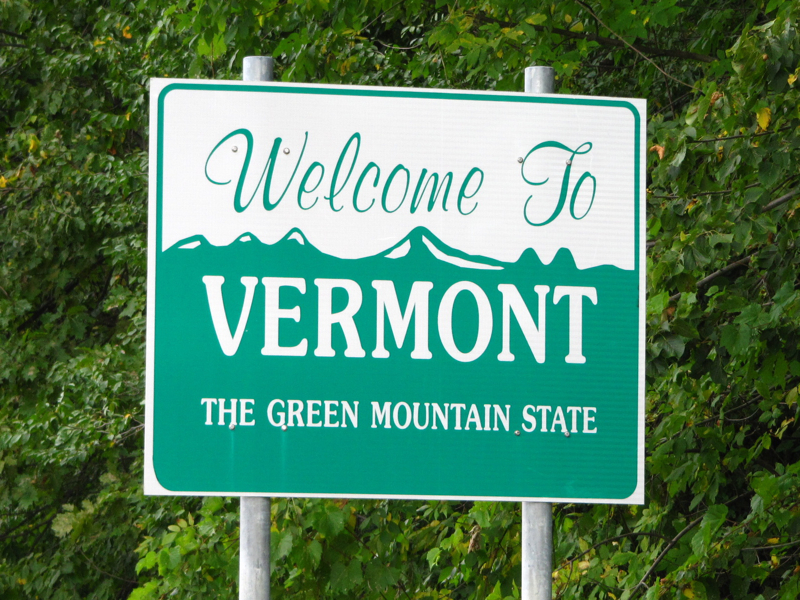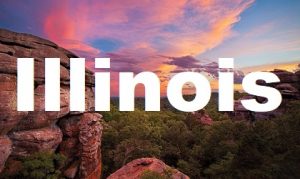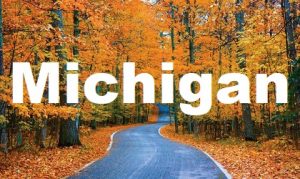Vermont is the first state in the US to legalize marijuana through a bill passed by the state legislature instead of a vote at the ballot box.
On Monday, January 22, 2018, Vermont Governor Phil Scott (R) signed House Bill 511 into law, making Vermont the ninth state in the US to legalize adult-use recreational marijuana. The previous eight states to legalize recreational marijuana all did so through a ballot proposition presented directly to voters. Vermont has now made history by becoming the first state to legalize marijuana though its legislature. Adults over 21 may now possess of up to one ounce of marijuana and up to two mature marijuana plants (and up to four immature plants).
In a statement addressed to the state’s General Assembly Governor Scott said, “Today, with mixed emotions, I have signed H. 511. I personally believe that what adults do behind closed doors and on private property is their choice, so long as it does not negatively impact the health and safety of others, especially children.”
“While this legislation decriminalizes, for adults 21 and older, personal possession of no more than 1 ounce, and cultivation of two mature plants on their private property, marijuana remains a controlled substance in Vermont and its sale is prohibited,” Scott’s statement also said.
Don’t expect recreational pot shops in Vermont anytime soon.
Despite the fact that a majority of Vermonters are in favor of legalized retail marijuana sales, Scott is not an advocate for recreational marijuana. As recently as last year, Scott vetoed a similar legalization bill that was passed by the General Assembly, objecting to that bill’s establishment of a study commission for a regulated recreational marijuana market. He also cited a lack of strong punishment for the sale of marijuana to minors in the 2017 bill.
 In order to obtain Scott’s signature on the bill, Vermont lawmakers included clear penalties for sale of cannabis to minors and completely removed language about establishing a recreational marijuana market in the state. Scott has established his own, handpicked committee to study the possibility of actually having a regulated recreational marijuana industry in Vermont.
In order to obtain Scott’s signature on the bill, Vermont lawmakers included clear penalties for sale of cannabis to minors and completely removed language about establishing a recreational marijuana market in the state. Scott has established his own, handpicked committee to study the possibility of actually having a regulated recreational marijuana industry in Vermont.
“There must be comprehensive and convincing plans completed in these areas before I will begin to consider the wisdom of implementing a commercial ‘tax-and-regulate’ system for an adult marijuana market,” the governor said on Monday. “It is important for the General Assembly to know that – until we have a workable plan to address each of these concerns – I will veto any additional effort along these lines, which manages to reach my desk.”
Scott’s selected commission to study retail marijuana sales is drawing plenty of criticism from long-time legalization advocates, including Lt. Governor David Zuckerman (Democrat / Progressive), who has been working on marijuana law reform for 20 years.
“There is frustration that the governor’s panels appear to be predetermined in opposition [to retail marijuana sales] versus the sentiment of the House and Senate, which was to move forward,” Zuckerman said.”I’m a supporter of a well regulated tax-and-regulate system for responsible adult use. This bill doesn’t generate [revenue] or bring the underground economy above board to be regulated.”
The law goes in effect on July 1 of this year. Governor Scott’s commission on retail marijuana sales is not expected to present its findings to the state legislature until end of the year, putting an uncertain timeline on when, or if, recreational pot shops will open in Vermont.













